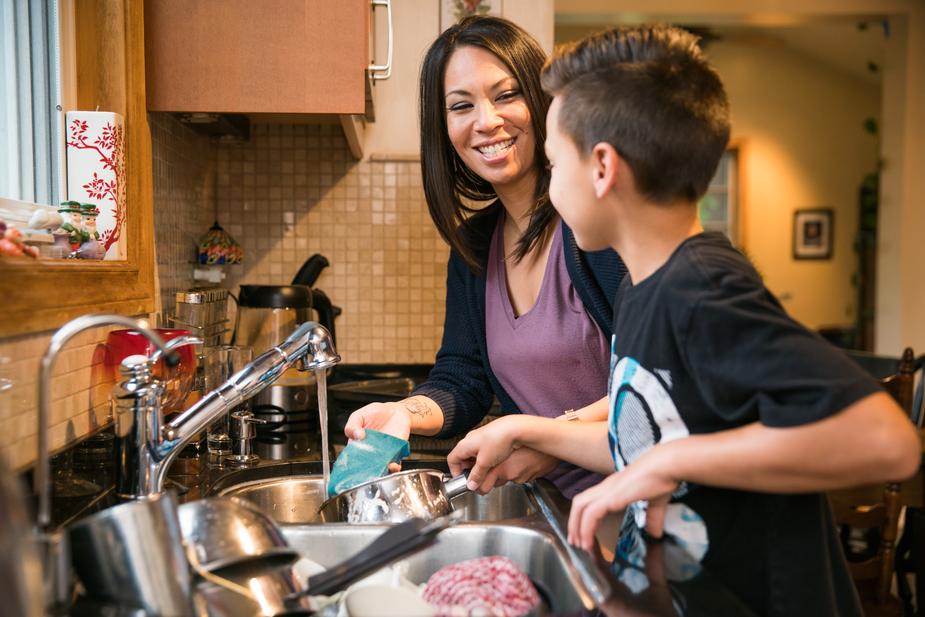How to Make the Holidays Great for Children of Divorce
Getting through the holidays can be a challenge for even the most “intact” family. When you add in the stress and strain that divorced families face under the “best” of circumstances, this time of year can seem insurmountable at times. This is particularly true if it is your first year after a divorce.
Holidays can also be especially difficult for kids of divorce, as the old traditions that made them feel secure and loved are now undergoing change. For example:
One parent might not be present at celebrations that have always been part of;
A child (or children) may have to now “split” the holiday between parents, instead of getting to “just relax” and enjoy time at one home;
The children may have to “hear” how much one parent is going to miss them while they are celebrating with the “other” parent.
And the list can go on….
Even so, there’s a lot you can do as a parent to make the holidays better for kids in the aftermath of divorce.

Here are a few ideas:
Don’t Try to Follow Every Tradition—Create New Ones!
You don’t have to follow through on every single family tradition you used to keep up prior to the divorce. It’s perfectly fine to choose a new one or modify the old ones that you know you can keep up with.
You can help your children feel better about the change by letting them have some say in your new traditions—this gives them a sense of ownership and control over the situation. Sit your children down and ask them which holiday traditions they want to make happen. Ask them to pick a few that are unique, fun and meaningful to you AND them.
Try to Keep The Daily Routine as Much as Possible During The Holidays
Children, especially younger children, feel secure and safe when they stick to a routine.
The holidays can disrupt that routine under the best of circumstances: in the aftermath of divorce, the sense of upheaval may be significantly bigger and sticking to a routine that much more difficult.
To help build a sense of security amidst all the change, try to keep to your children’s regular routines as much as you can. This may mean maintaining the regular bedtime or breakfast rituals, or it may mean keeping them in one home and letting various people in your family come to you to celebrate the holidays (at separate times) if necessary.

Don’t Make Present-Giving a Competition
It’s pretty common for divorced spouses to try to one-up each other in “present-giving.” This type of competition sets up a contentious and stressful environment for children and often leads to a sense of entitlement down the road. Don’t give in to the pressure of “oneupmanship.”
Instead of competing, collaborate with your ex-spouse on giving gifts and communicate with them about it. Work with them to decide who buys what, or pitch in together on a bigger-ticket item.
Ask Your Kids to Make a Card or Buy a Present For The Other Parent
This is a great way to extend generosity and send the message to your children that you want them to have a great relationship with the other parent, even though you are divorced.
Ask your children to decorate a card, buy a present, or do something else nice for your ex-spouse during the holidays. This will reinforce what many divorced parents tell them during the process: the divorce is between the parents, not between parents and children. While it may seem like you have to “swallow a big pill,” your children will appreciate it in the long run and they will be better off for it.
Avoid Asking the Kids to Choose
One of the most difficult things about divorce for children is that they are sometimes put in positions where they have to choose between one parent and the other. This can be extremely stressful for them.
Around the holidays, make a concerted effort to avoid asking the kids to choose between you and the other parent.
Don’t try to one-up your ex on presents, or discourage the children from buying presents or spending one-on-one time with your ex.
Make Decisions For the Kids Based on Age
When the children are teenagers, it may be fine to let them decide how they’ll divide up their holiday. But for those aged 14-16 and younger, it is usually better to negotiate that with your ex-spouse alone.
It can be tempting to let children have a bigger say in how the holidays are divided up, but it can also be stressful for them and they may feel like they’re being asked to choose between you. Having the choice made for them can cut down on decision-based stress.
Be Conservative About Inviting a New Significant Other to Your Holiday
If you’re in a new relationship, it can be tempting to invite that person to spend the holidays with you and your children. Or your ex-spouse may want to involve their new significant other in your holiday.
This may or may not be a good idea depending on your history, but be very careful of doing this too soon or being too eager for it to happen. Children will often let you know when they are ready to spend time over the holidays with a significant other—listen to them!
Many experts say it takes children about three to five years to return to a sense of stability after their parents have divorced. For a child to meet a new boyfriend or girlfriend too soon, especially over the holidays can be overwhelming, particularly given the high-stress and high-pressure of the holidays to begin with.
It is usually best to avoid bringing a new significant other to your family holiday until it is substantially after the divorce, you are in a serious relationship with the new partner, and they have met the children in a lower-stress situation and environment.

Always Keep it About the Kids
If your divorce was contentious, it can be difficult to avoid bringing up past grievances with your ex-spouse, especially when trying to negotiate the specifics of the holidays. Any disagreement could give rise to old feelings of hurt and betrayal.
Feelings of hurt or betrayal tend to be pronounced during the holidays so it is important to keep them focused on your children. When you and your ex-spouse disagree, try to come to a consensus based on the children’s best interests, and avoid discussions about your own wants or needs.
Remember, no matter your other differences, you and your ex both want to make the holidays as good as possible for your children.
Work with a Knowledgeable Georgia Divorce Lawyer
Are you considering a divorce? If so, you need a lawyer who will help you achieve the best possible outcome for yourself and your children.
Give us a call at (678) 738-0056 for a free, confidential consultation now. We are available 24/7and are happy to discuss how we can help you.











